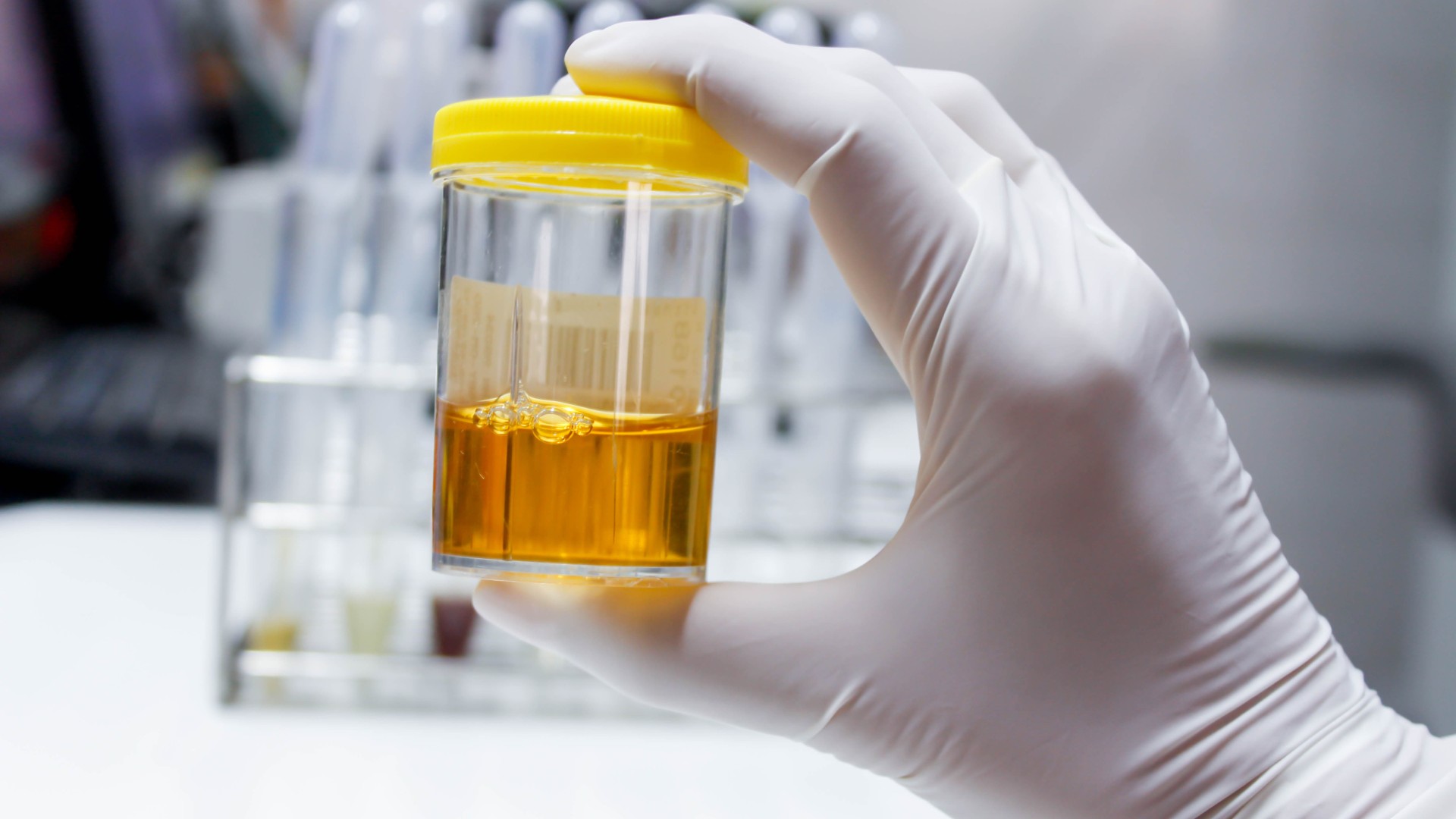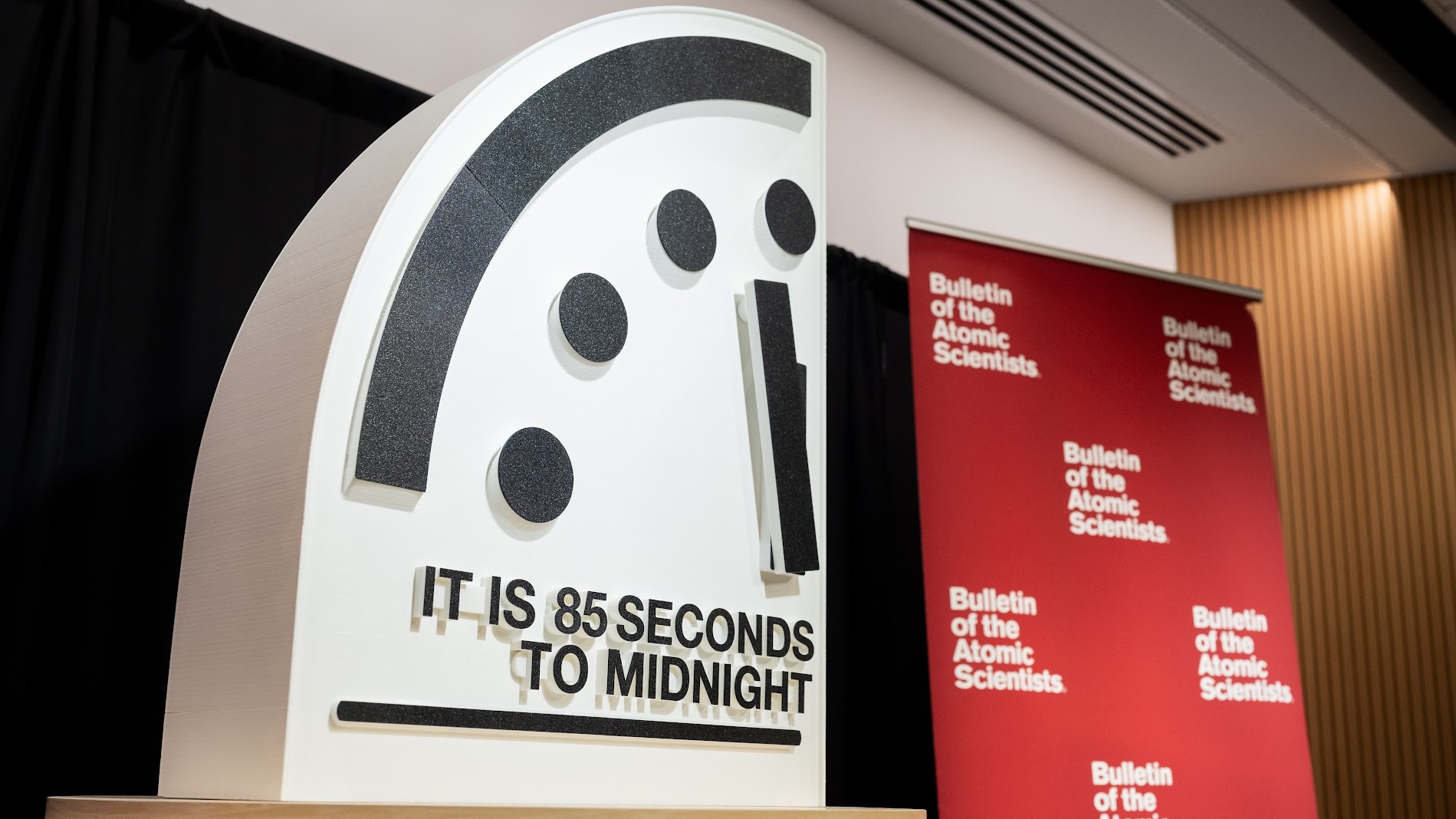Finally, we know why pee is yellow
Scientists finally resolved a mystery you may not have known needed solving — we now know why urine is yellow.
We're told to watch out for color changes in our pee, as the loss of its normal, yellowish hue could be a sign of a medical problem — but what actually makes urine yellow in the first place?
Turns out, scientists didn't know the exact answer to this question until recently. Now, researchers have discovered that pee's golden color is caused by an enzyme called bilirubin reductase, which is produced by bacteria in the gut. The scientists reported their findings in a new study, published Wednesday (Jan. 3) in the journal Nature Microbiology.
Scientists previously knew that urine's yellow color stems from how the body disposes of old blood cells. When red blood cells reach the end of their life cycle — usually after around 120 days — they are degraded in the liver. One of the byproducts of this process is a bright orange substance called bilirubin, which is secreted from the liver into the gut. Bacteria within the gut convert bilirubin into a colorless substance called urobilinogen. This substance then degrades into urobilin, a yellow pigment that gives urine its color.
Until now, though, scientists couldn't identify the specific bacterial enzyme responsible for converting bilirubin to urobilinogen.
Related: Ants can detect the scent of cancer in urine
The authors of the new study say that the discovery could have potential health implications. Namely, it could improve our understanding of the role of the gut microbiome — the community of microbes in the gut — in conditions such as jaundice, the yellowing of the skin and eyes, or inflammatory bowel disease (IBD), chronic inflammation in the digestive tract. Jaundice develops because of a build-up of bilirubin in the blood, while people with IBD have been observed to have lower levels of urobilin than adults without the condition.
"It's remarkable that an everyday biological phenomenon went unexplained for so long, and our team is excited to be able to explain it," Brantley Hall, the lead study author and an assistant professor in the Department of Cell Biology and Molecular Genetics at the University of Maryland, said in a statement.
Get the world’s most fascinating discoveries delivered straight to your inbox.
Previous research into the color of urine was conducted before genomic sequencing technologies became widely available, which made it difficult to identify which strains of bacteria were actually present in urine samples, the authors wrote in the paper.
In the new study, the researchers compared the genomes of species of human gut bacteria that can convert bilirubin into urobilinogen and those that lack this capacity. In this way, they identified the gene that encodes bilirubin reductase. They then tested whether the enzyme was able to facilitate this conversion in the model organism Escherichia coli, better known as E. coli.
By searching for the gene in all gut bacterial species, they discovered that the enzyme is mainly produced by species belonging to a large group known as the Firmicutes, which dominate the human gut microbiome.
The team then genetically screened the gut microbiomes of 1,801 healthy adults, hunting for the pee-coloring gene. They found that 99.9% of the people had gut bacteria that carried the gene for bilirubin reductase.
They also looked for the gene in the guts of more than 1,800 adults with IBD and of about 4,300 healthy infants and found it was much less prevalent. Only 68% of people with IBD appeared to carry the gene, along with 40% of babies less than 3 months old, who are at a heightened risk for jaundice.
More research is needed to explain this association and how an absence of bilirubin reductase could contribute to jaundice and IBD, the authors noted.
"Now that we've identified this enzyme, we can start investigating how the bacteria in our gut impact circulating bilirubin levels and related health conditions like jaundice," Xiaofang Jiang, co-senior study author and investigator at the National Institutes of Health, said in the statement.
Ever wonder why some people build muscle more easily than others or why freckles come out in the sun? Send us your questions about how the human body works to community@livescience.com with the subject line "Health Desk Q," and you may see your question answered on the website!

Emily is a health news writer based in London, United Kingdom. She holds a bachelor's degree in biology from Durham University and a master's degree in clinical and therapeutic neuroscience from Oxford University. She has worked in science communication, medical writing and as a local news reporter while undertaking NCTJ journalism training with News Associates. In 2018, she was named one of MHP Communications' 30 journalists to watch under 30.
 Live Science Plus
Live Science Plus






